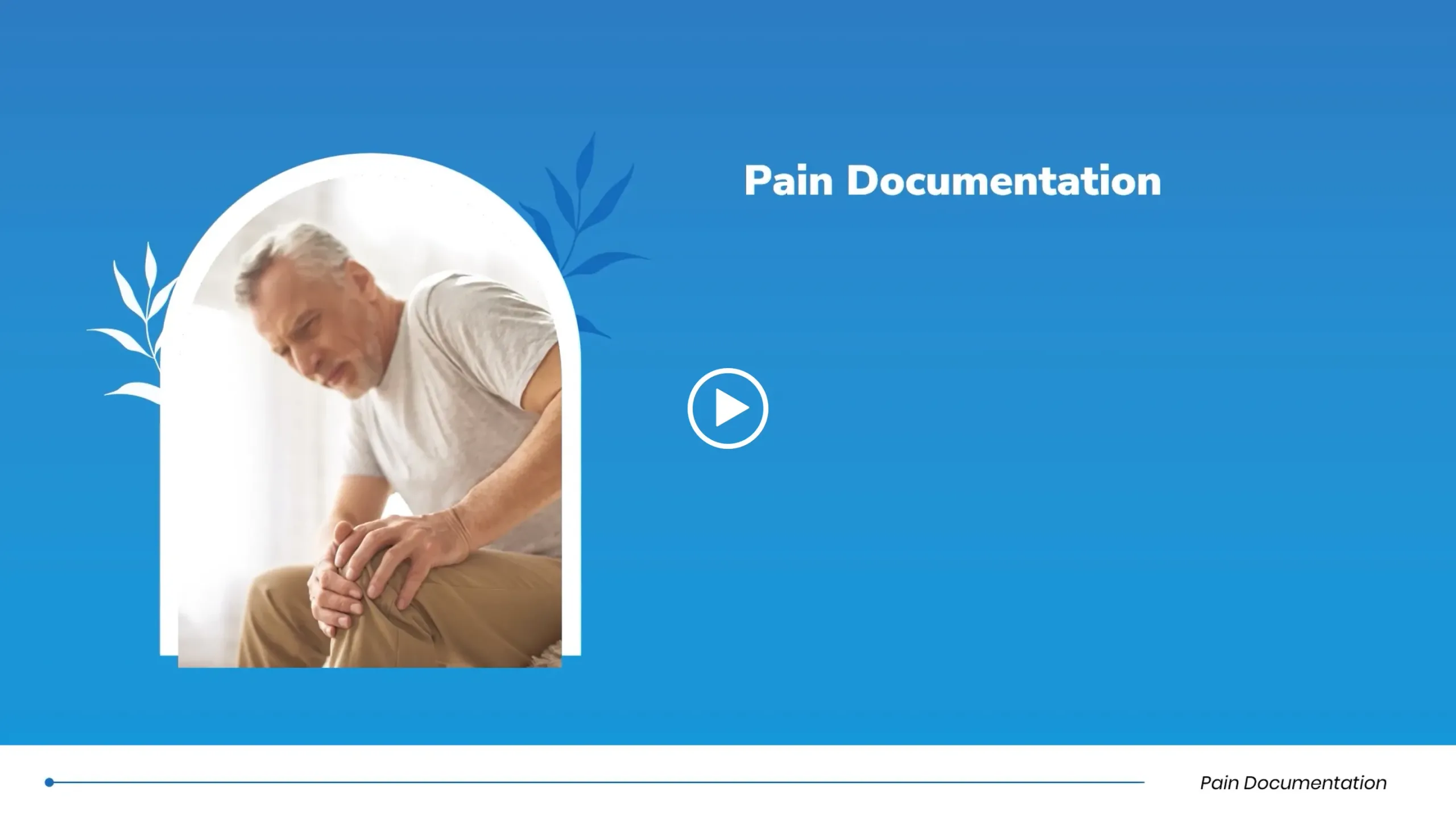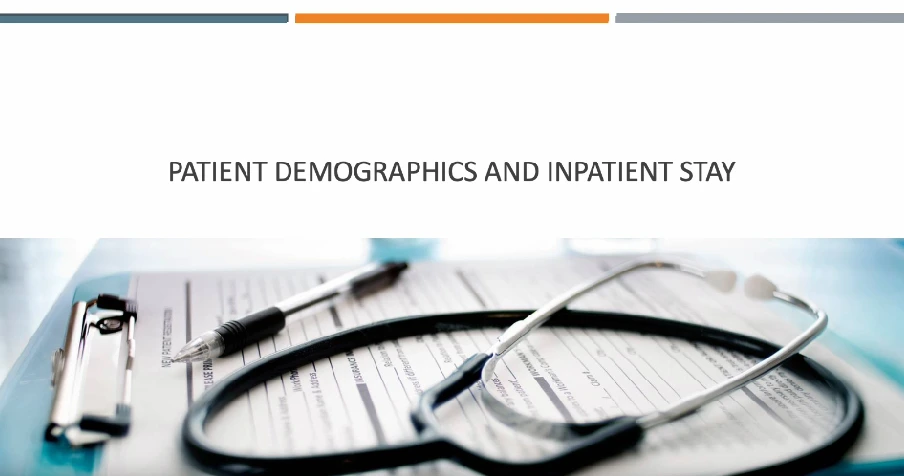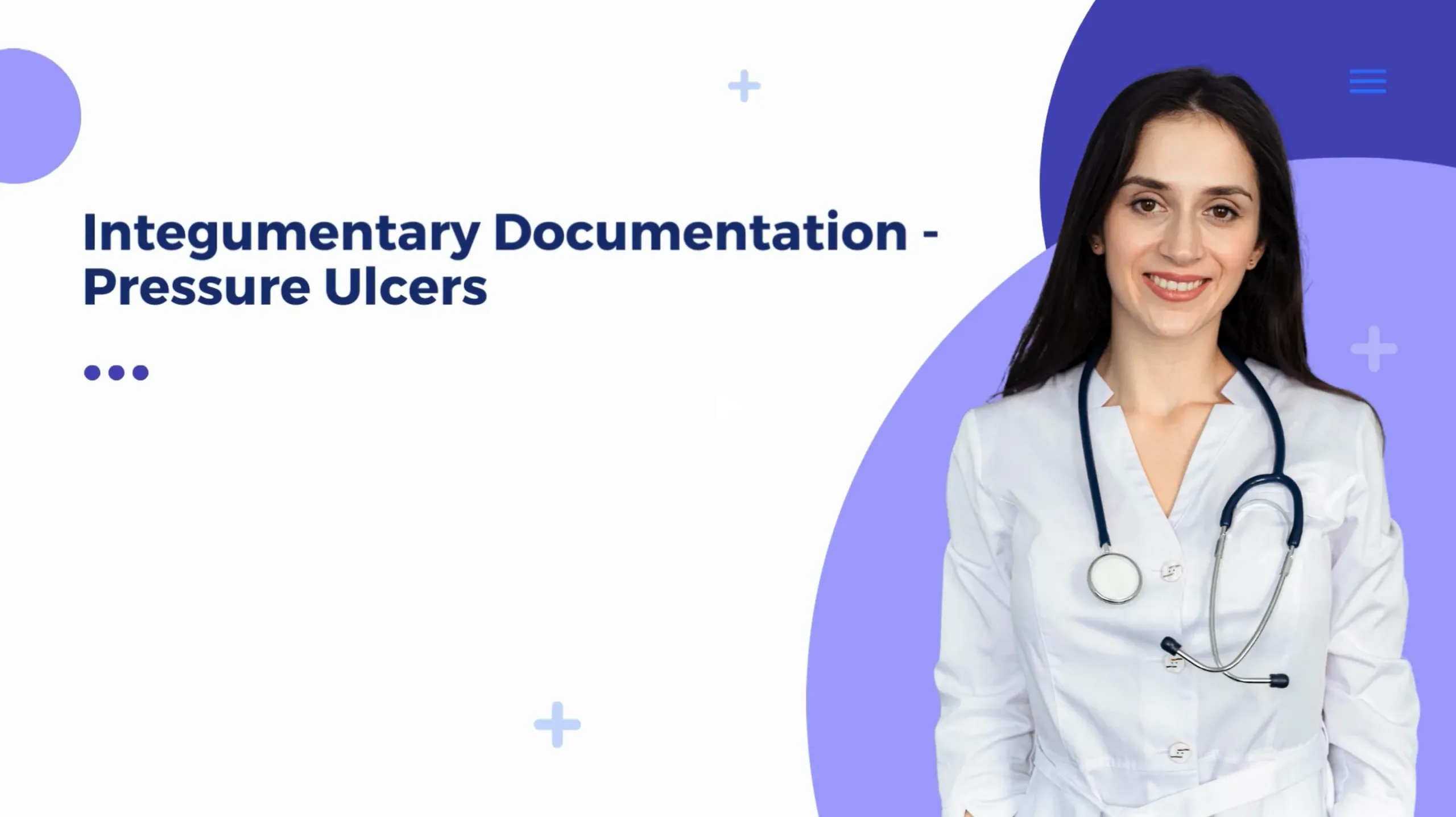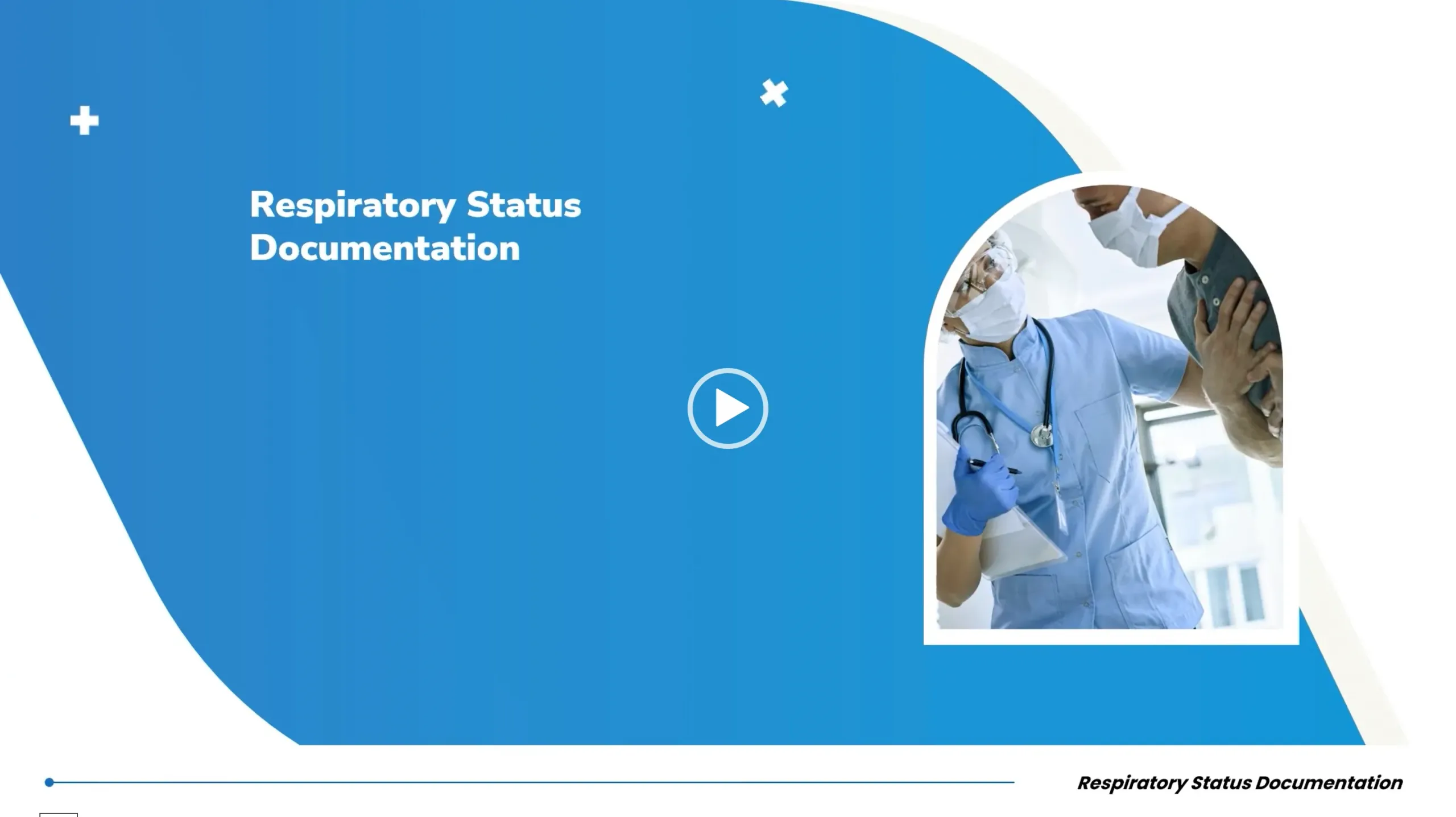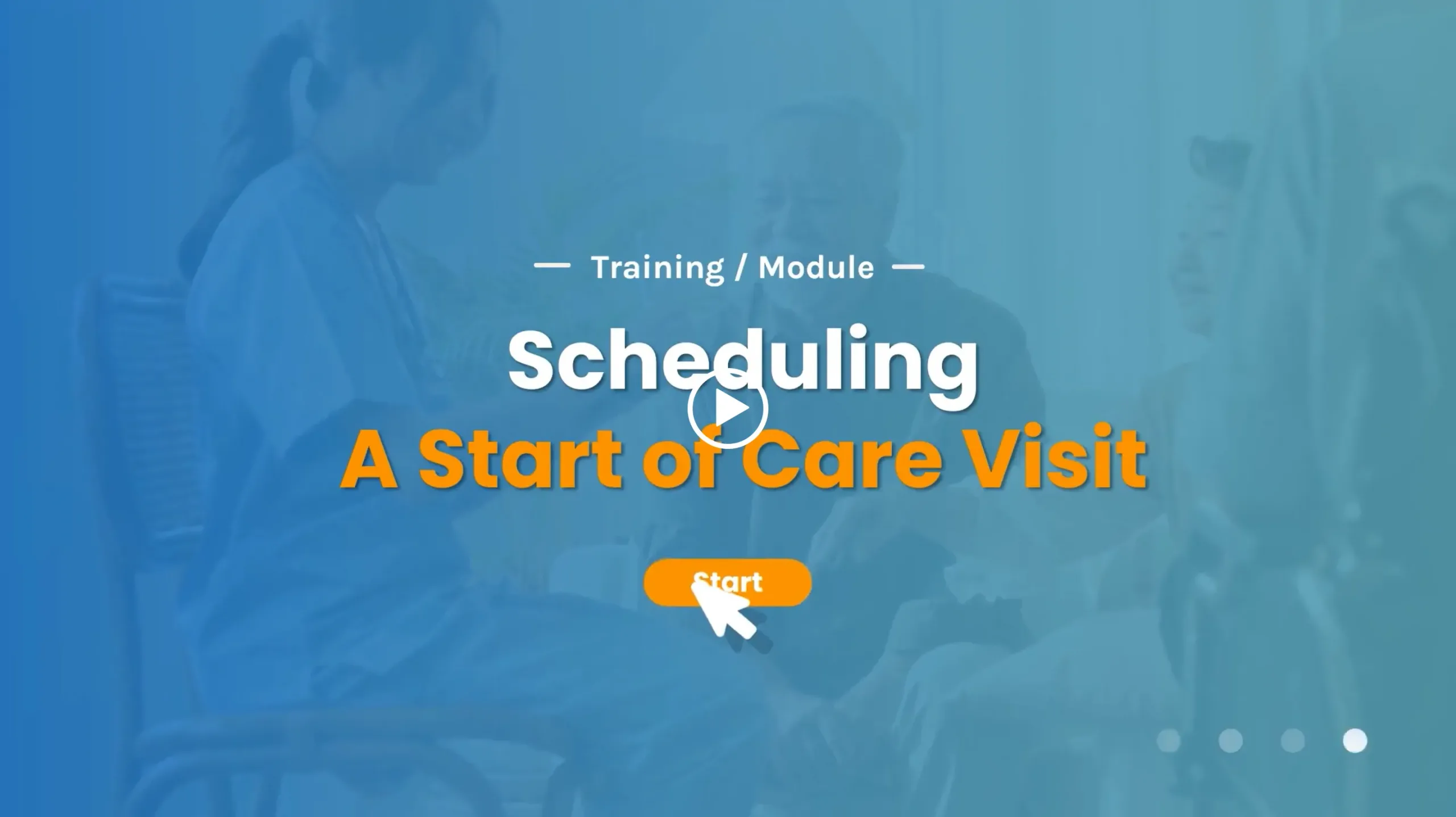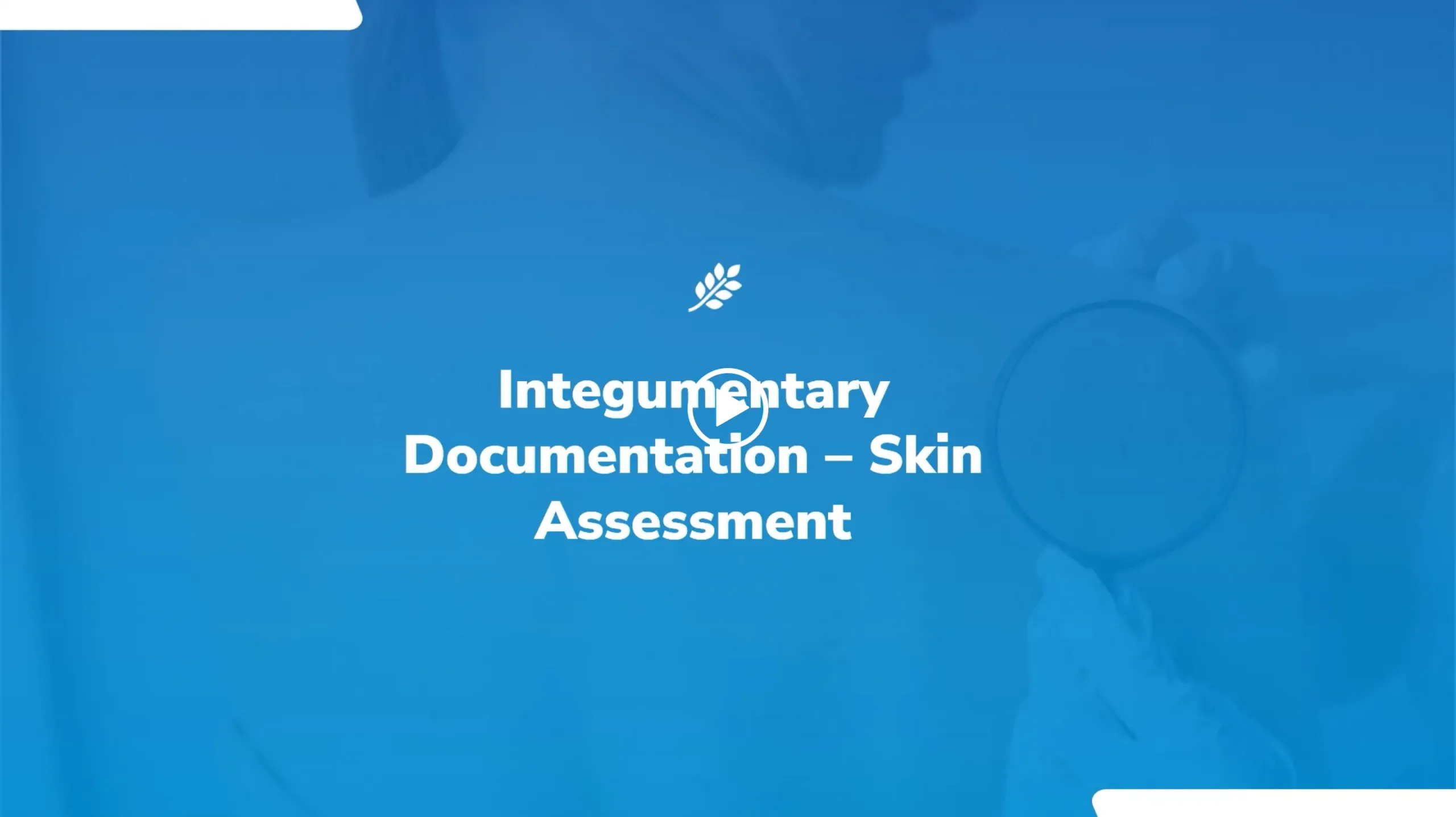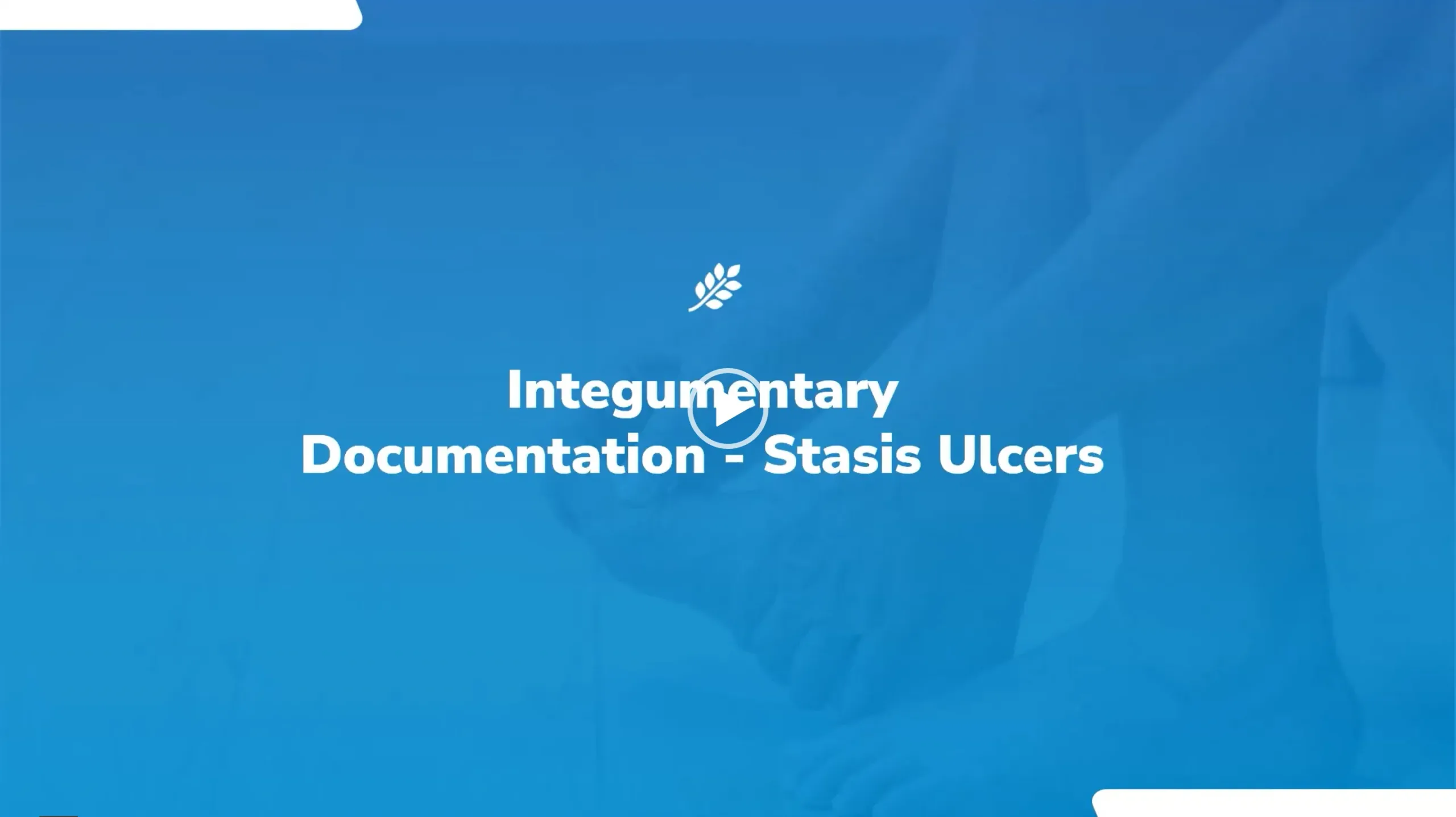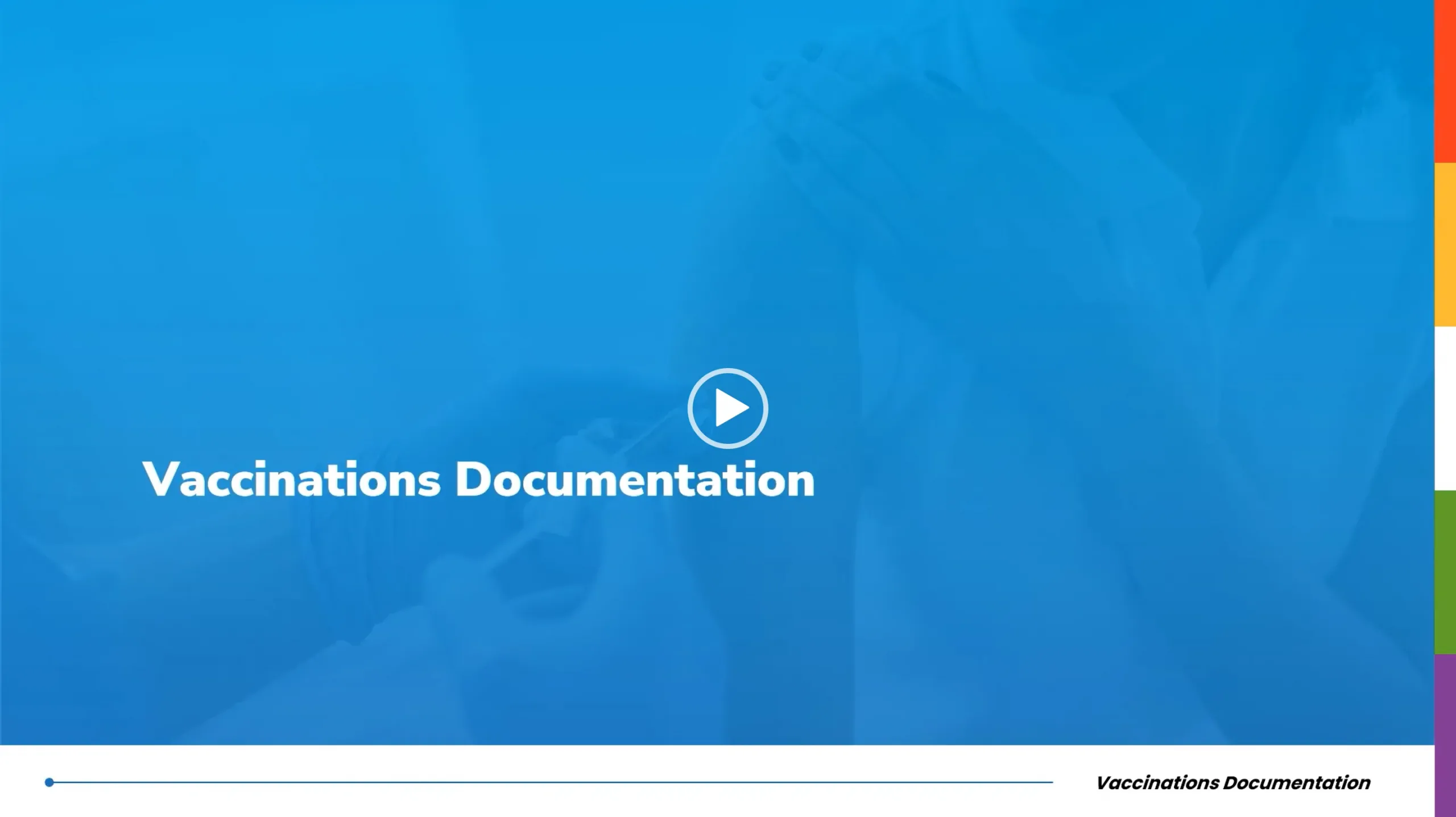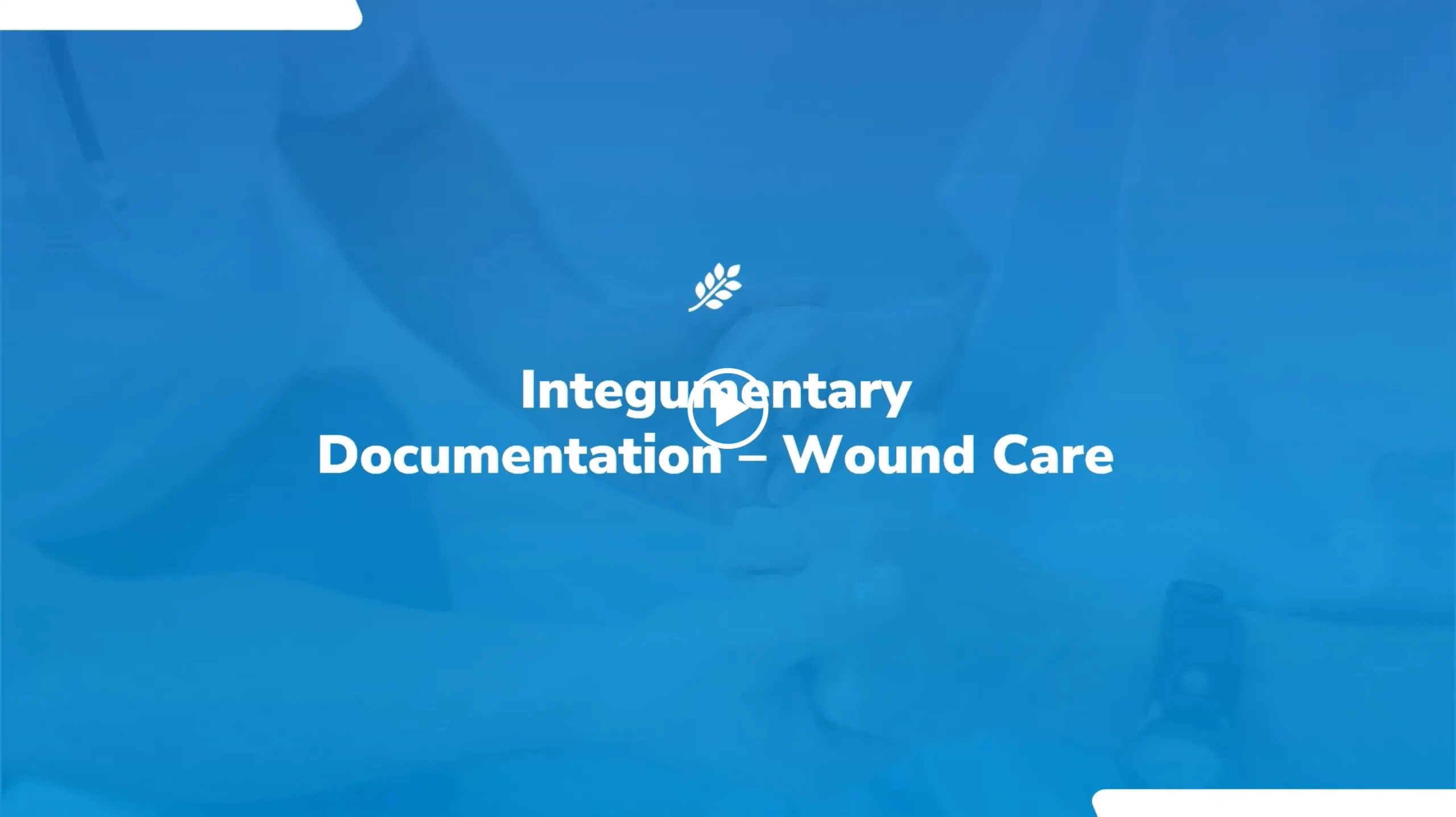Pain Documentation
This OASIS-E1 training video presents information on the Pain section such as pain evaluation, pain management, types of pain etc.
We also discuss how to answer the OASIS questions J0510, J0520 & J0530 which are the mandatory questions for pain evaluation on section J of OASIS-E1.
Pressure Ulcer Documentation
A brief discussion on pressure ulcers, risk factors for pressure ulcer development, grading of pressure ulcers, and guidelines for documentation is presented here for your reference. Also, the presentation discusses in detail on how to answer M1306, M1307, M1311, M1322 & M1324 which are the mandatory question on OASIS E1 for pressure ulcers.
Respiratory Status Documentation
This OASIS-E1 training video presents information on the Respiratory section. Documentation on Respiratory system involves noting for breath sounds, altered breathing patterns, irregular breath sounds, checking for dyspnea, any acute exacerbation of shortness of breath, any current active episode of cough or chest infection, any recent activation of seasonal allergies, compliance with prescribed inhalation & nebulizer medications if any, compliance with oxygen supplementation if any prescribed, and reading oxygen saturation.
We also discuss how to answer the OASIS question M1400 which is the mandatory question for Respiratory evaluation on section J of OASIS-E1.
Stasis Ulcers Documentation
In this presentation, we will learn about the risk factors for developing venous ulcers, also known as stasis ulcers and the OASIS-E1 skilled nursing documentation needs on stasis ulcers. This presentation also discusses in detail on how to answer the mandatory questions related to stasis ulcers- M1330, M1332 & M1334.
Vaccinations Documentation
Vaccinations against multiple health conditions are recommended for patients spanning across different age groups. Vaccinations are aimed at protecting individuals from contacting infections, preventing serious illness due to infection, avoiding development of complications, and reducing risk for prolonged hospitalization. Collect information on all your patients regarding some basic vaccination history, such as, for conditions discussed in this presentation.
Wound Care Documentation
In this presentation, we will learn about the wounds, wound care documentation, healing stages of the wounds, how to answer the mandatory questions on the integumentary section of the OASIS-E1 which are related to surgical wounds. This presentation also discusses the mandatory questions related to wound care – M1340 & M1342.
OASIS Training Videos for Home HealthSite Dev2024-10-14T08:53:02-06:00

